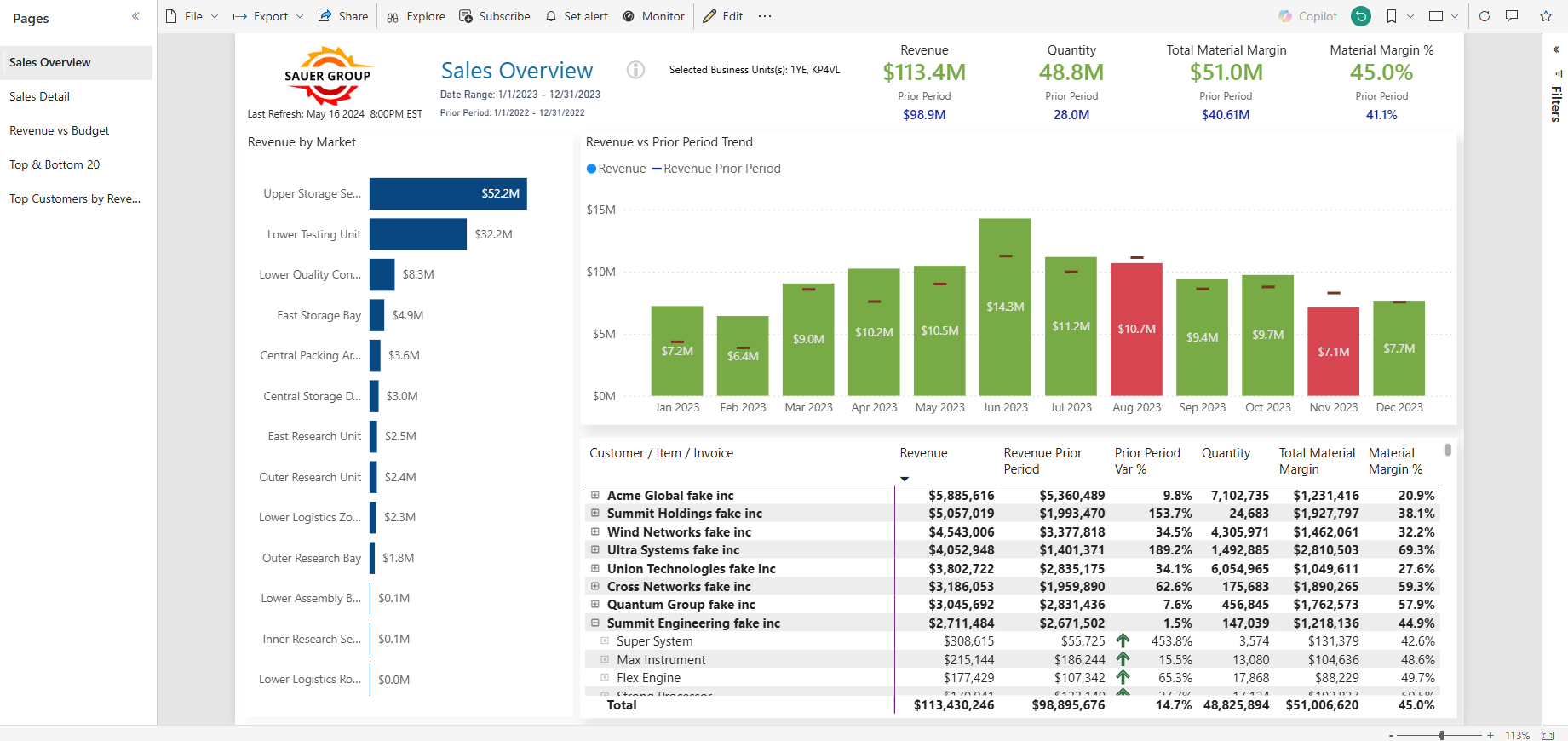If your business is suffering from dysfunction, a likely culprit is lack of data visibility, which causes reactive instead of proactive management and leaves gaps between the business plan and its execution. Without data visibility, conflicting metrics and uncertainty spread across the organization, and culture decays. But perhaps the most damaging effect of poor visibility is weak accountability.
Improve Accountability with Data Visibility
“We have found that accountability is arguably the most powerful tool for driving human motivation.” – Jon Thompson, Blue Margin (watch the full webinar )
When looking to propel your company’s growth and improve company culture, consider deploying BI dashboards to drive accountability . Research shows that humans generally appreciate insight into their performance against expectations and like keeping score (Coonradt, 2012).
You might ask, “How is BI connected to accountability?” or “How does that connection drive growth and cultural health?” Here are a few quick takeaways:
- Dashboards provide transparency through a simple visual system so employees can see the score, increasing motivation and performance.
- Accountability helps leaders democratize the flywheel, sharing the responsibility of advancing the value creation plan. ( Read our interview with Jill Belconis for more insight on this topic. )
- Accountability correlates with healthier team culture and higher levels of employee engagement. “Employees want a greater sense of ownership. They’re staking a claim alongside executives in making an impact… Sharing the company’s vitals establishes the equality and engagement employees seek” ( Thompson, 2019 ).
- Accountability requires organizational alignment on metrics. Employees must be involved in defining their metrics so that they’re reasonable, realistic, and within their span of control.
In this podcast episode, Using BI to Drive Accountability , CEO Brick Thompson and Business Intelligence Consultant Greg Brown discuss how data visibility powers team and individual accountability . They debunk the common negative connotations associated with the word “accountability,” and discuss how accountability drives growth and a healthy culture.
Listen below, or read the full transcript .



